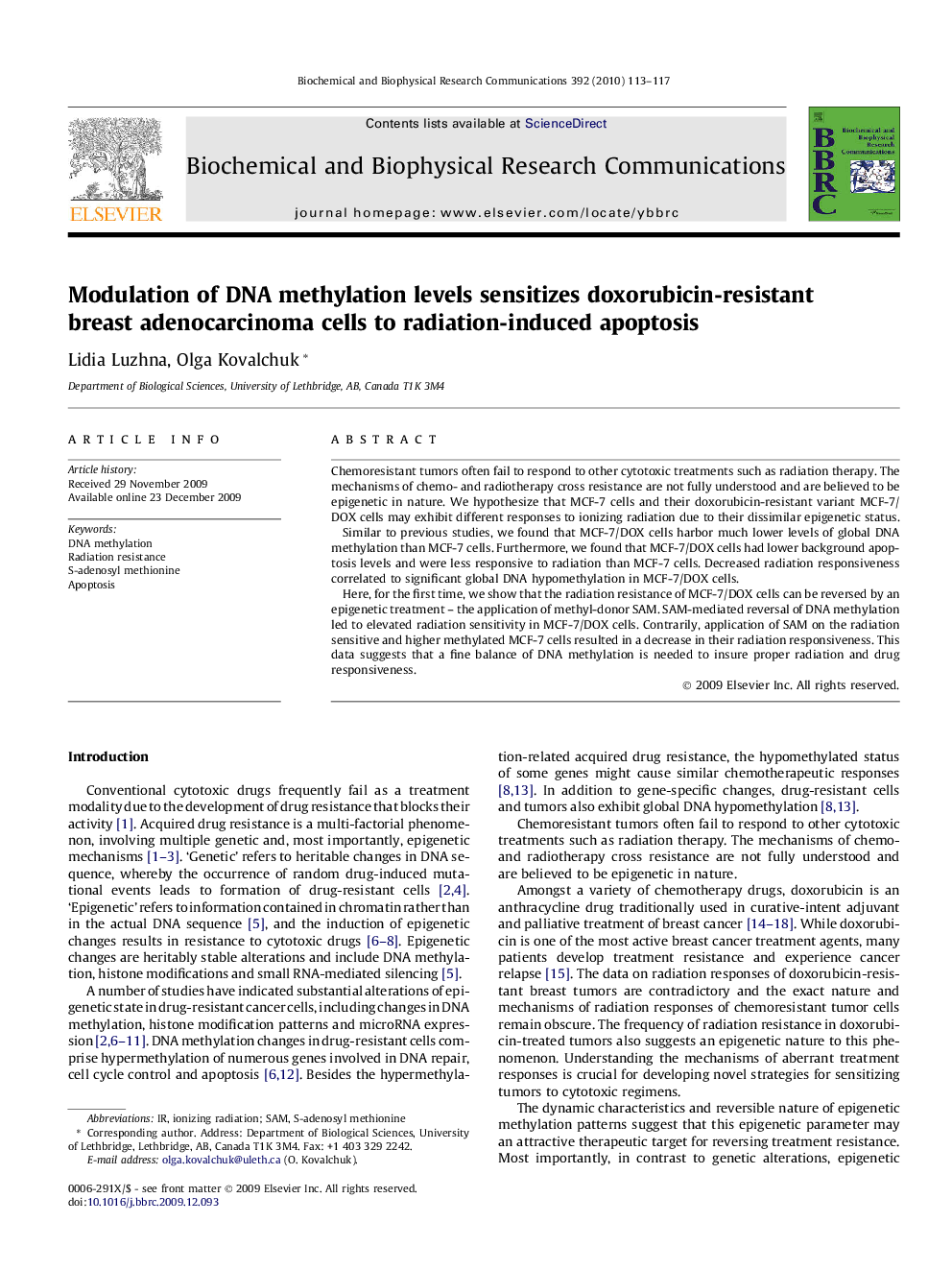| Article ID | Journal | Published Year | Pages | File Type |
|---|---|---|---|---|
| 1932672 | Biochemical and Biophysical Research Communications | 2010 | 5 Pages |
Chemoresistant tumors often fail to respond to other cytotoxic treatments such as radiation therapy. The mechanisms of chemo- and radiotherapy cross resistance are not fully understood and are believed to be epigenetic in nature. We hypothesize that MCF-7 cells and their doxorubicin-resistant variant MCF-7/DOX cells may exhibit different responses to ionizing radiation due to their dissimilar epigenetic status.Similar to previous studies, we found that MCF-7/DOX cells harbor much lower levels of global DNA methylation than MCF-7 cells. Furthermore, we found that MCF-7/DOX cells had lower background apoptosis levels and were less responsive to radiation than MCF-7 cells. Decreased radiation responsiveness correlated to significant global DNA hypomethylation in MCF-7/DOX cells.Here, for the first time, we show that the radiation resistance of MCF-7/DOX cells can be reversed by an epigenetic treatment – the application of methyl-donor SAM. SAM-mediated reversal of DNA methylation led to elevated radiation sensitivity in MCF-7/DOX cells. Contrarily, application of SAM on the radiation sensitive and higher methylated MCF-7 cells resulted in a decrease in their radiation responsiveness. This data suggests that a fine balance of DNA methylation is needed to insure proper radiation and drug responsiveness.
